Mind-Body Column – Intro
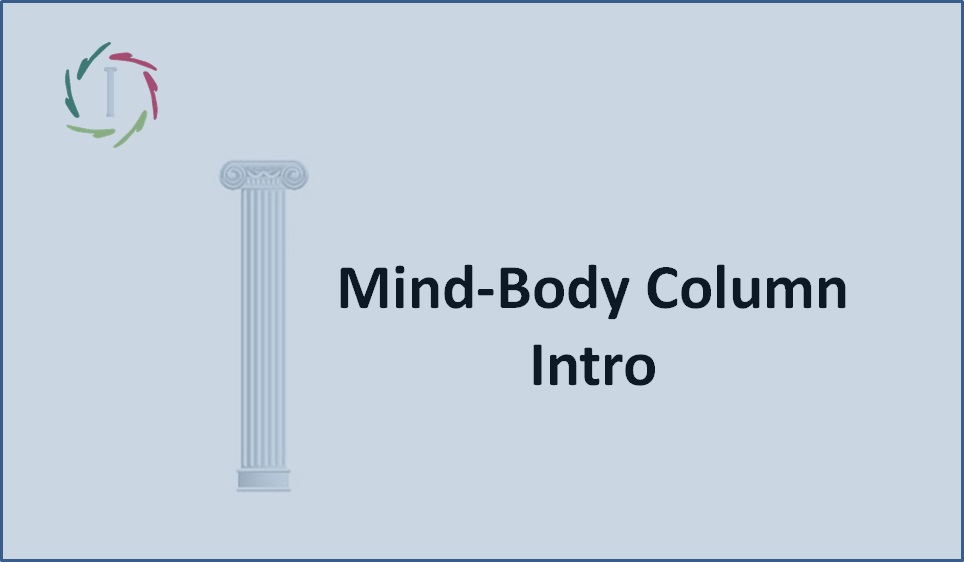
‘Mind-Body’ texts are written mainly for healthcare providers but also for broad public. These texts are intended to let readers each time again reflect for a while about psyche-related subjects in an intriguing way. Philosophical now and then and nevertheless also with concrete relevance to medical practice. The basic idea is that in medical thinking Read the full article…
43. A Pillow Full of Sleep, a Head that Roams the Late-Night Corridors
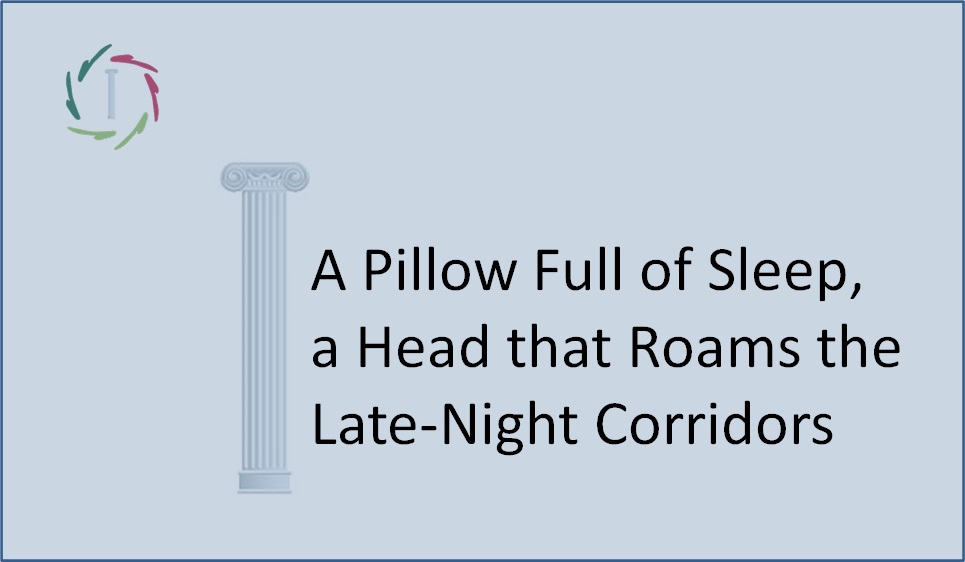
A good night’s sleep requires respect for nature within you. One cannot simply fall asleep based on a mere act of will, such as by snapping your fingers or closing your eyes. That would be easy, of course. But it’s not. One can take care of the surroundings, though, lay down, eyes closed. Ultimately sleep Read the full article…
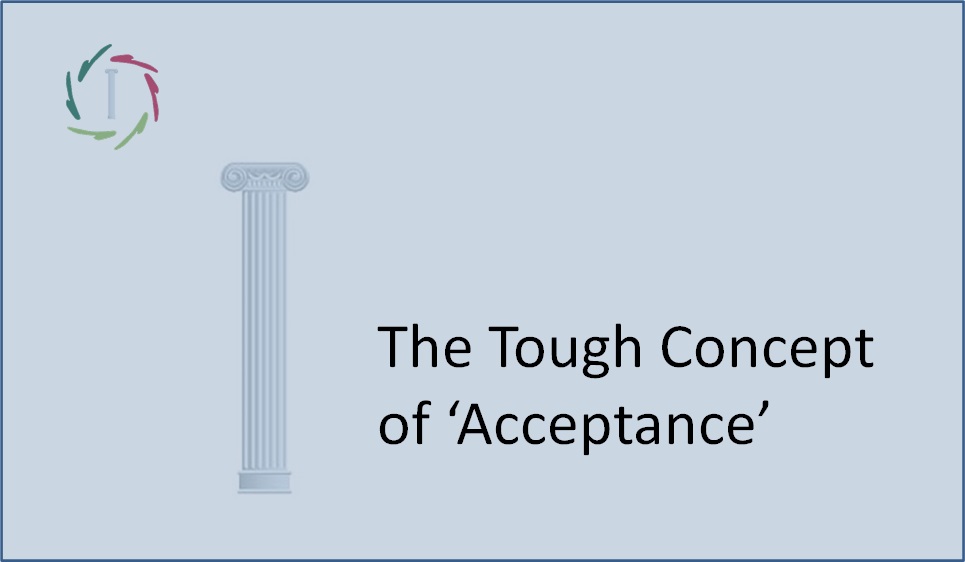
40. The Tough Concept of ‘Acceptance’
‘Acceptance’ has two different meanings. One leads to helplessness. The other leads to self-sufficiency. Once it was commonplace: People had to learn to accept chronic pain (and suffering in general) by the will of God, willingly or unwillingly. People had to ‘learn to live with it.’ In an era where there were no painkillers, people Read the full article…
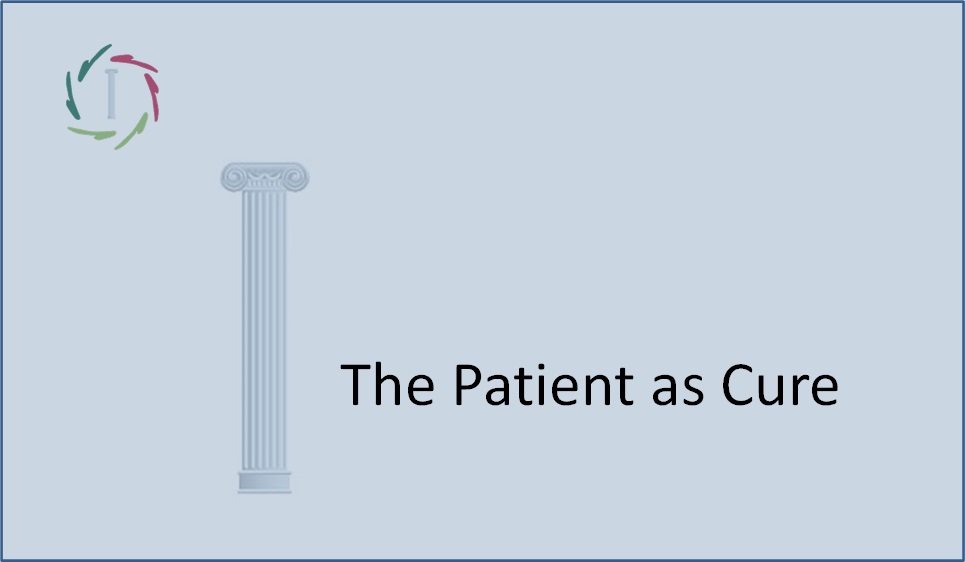
49. The Patient as Cure
If the placebo is made of sugar, the drug is the patient. It’s not the placebo that is ‘effective.’ It is the patient The history of medicine is sometimes called the history of placebo. That’s not unwarranted. Of all the drugs delivered about 100 years ago with an air of ‘this will work for you,’ Read the full article…
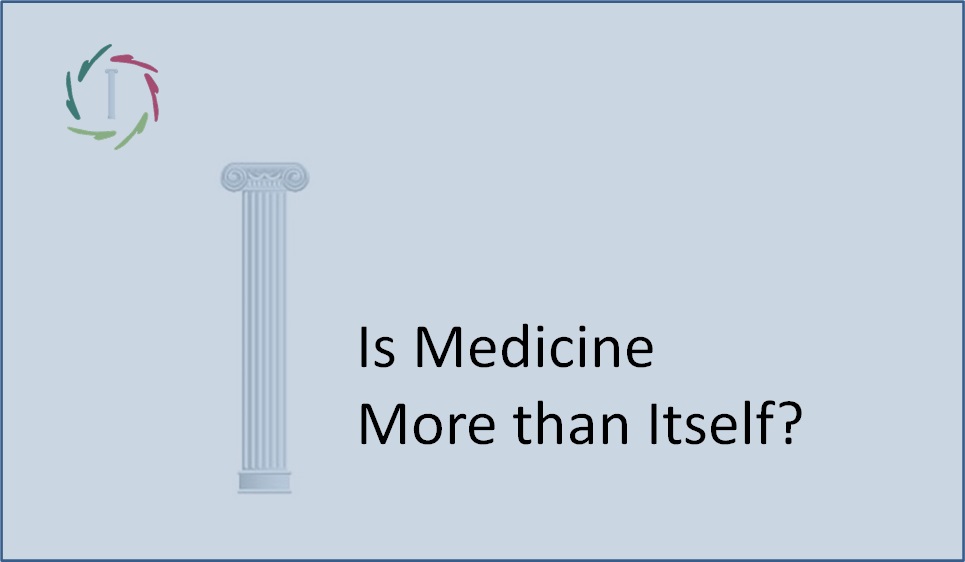
48. Is Medicine More than Itself?
The phenomenon called ‘human being’ is a totality, not the sum of all parts. The elephant viewed through the keyhole. Suppose several people are looking through a keyhole simultaneously, with the necessary drumming, of course, at an elephant who is standing in the room behind that door. One observer sees the elephant’s tail; the other Read the full article…
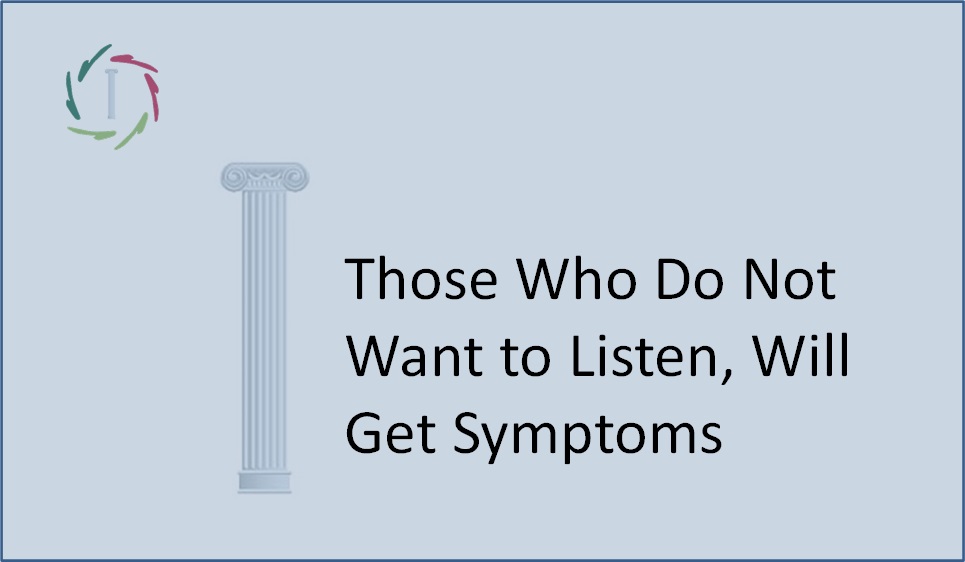
47. Those Who Do Not Want to Listen, Will Get Symptoms
Psycho-somatic symptoms are present because something else is not. The symptom as second best A person who suffers chronically from the pressure of stressful conditions will eventually develop symptoms (palpitations, dyspepsia…). That person can do something about those conditions. This will relieve stress, which in turn leads to fewer symptoms. He can also work on Read the full article…
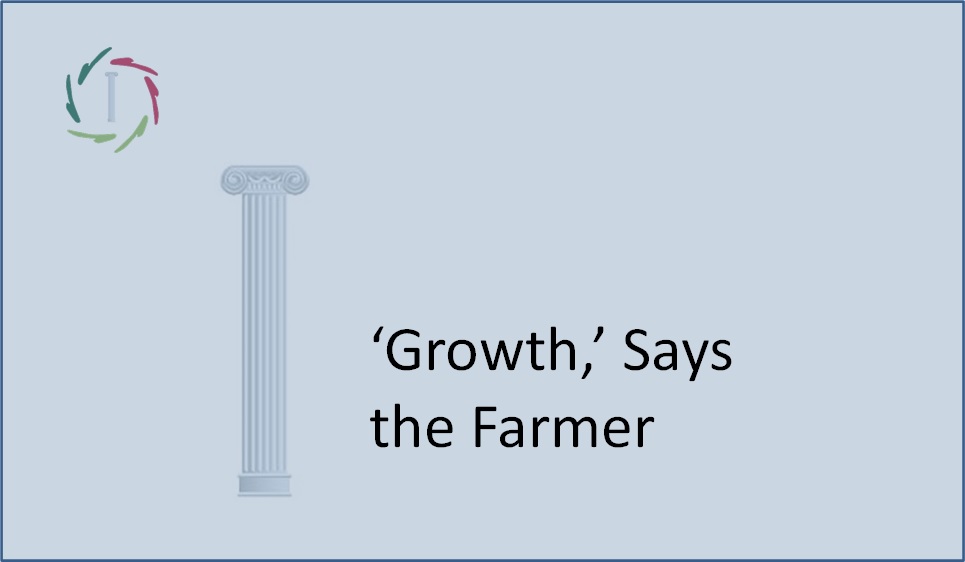
46. ‘Growth,’ Says the Farmer
Every living thing in nature is ‘growing,’ including us. All respect to farmers I have fond memories of (really, more youthful readers) the back of a Brabantian draft horse. I sat on the horse cart on the way to the field to bind the hay together in triangular bales and to load the hay bales Read the full article…
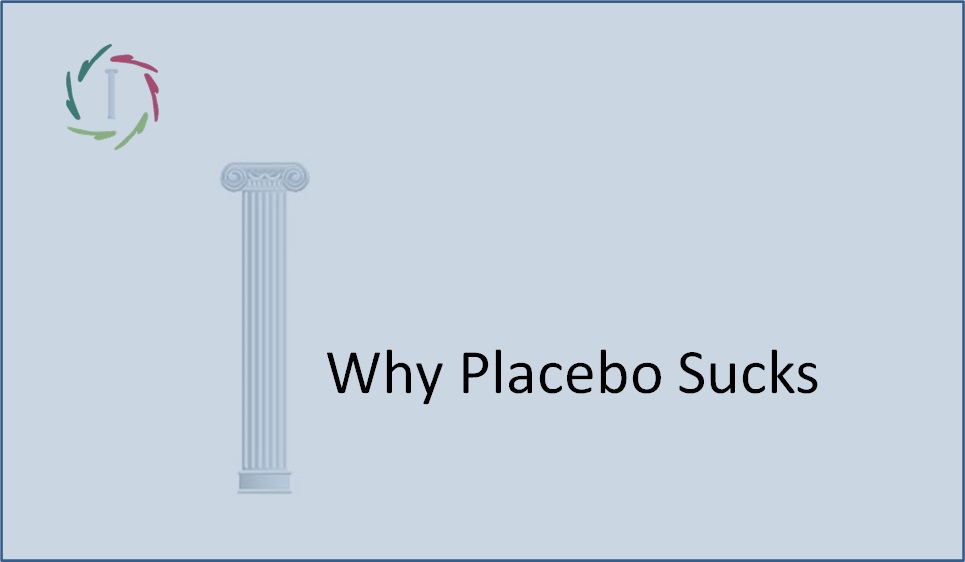
45. Why Placebo Sucks
Main side-effect: the diminishment of self-reliance If it does not harm, it is of no use “No harm, no foul.” In the case of a pure placebo, this statement is absurd. It is based on the fact that there are at least no side effects. If placebo has no effect, it also has no side Read the full article…
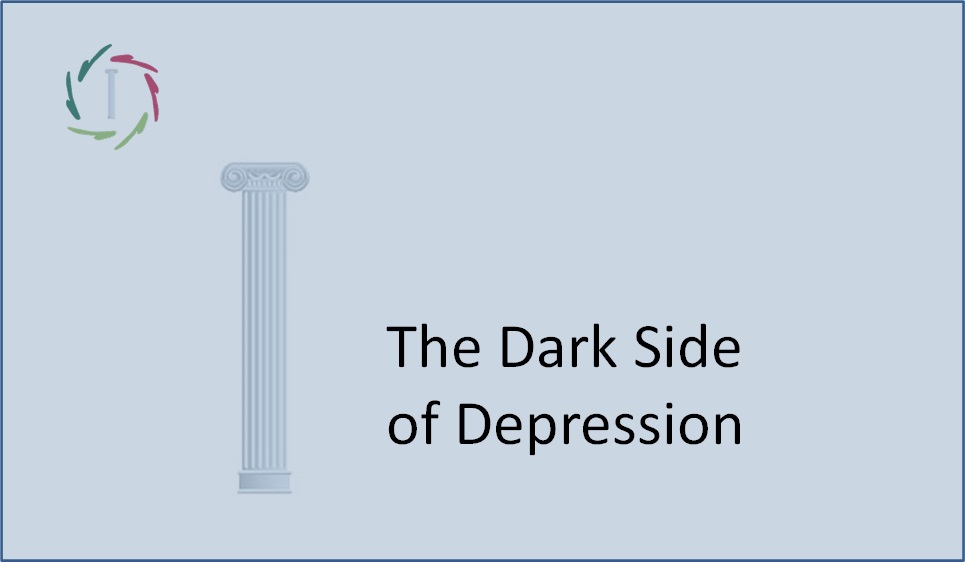
44. The Dark Side of Depression
An internal dissociation between consciousness and the non-conscious may be hidden in depression. Is it just the brain that’s depressed, or is it the total person? It is not that depression has nothing to do with hormones and neurotransmitters and the like, but does it make sense to talk about a ‘depressed brain’? This also Read the full article…
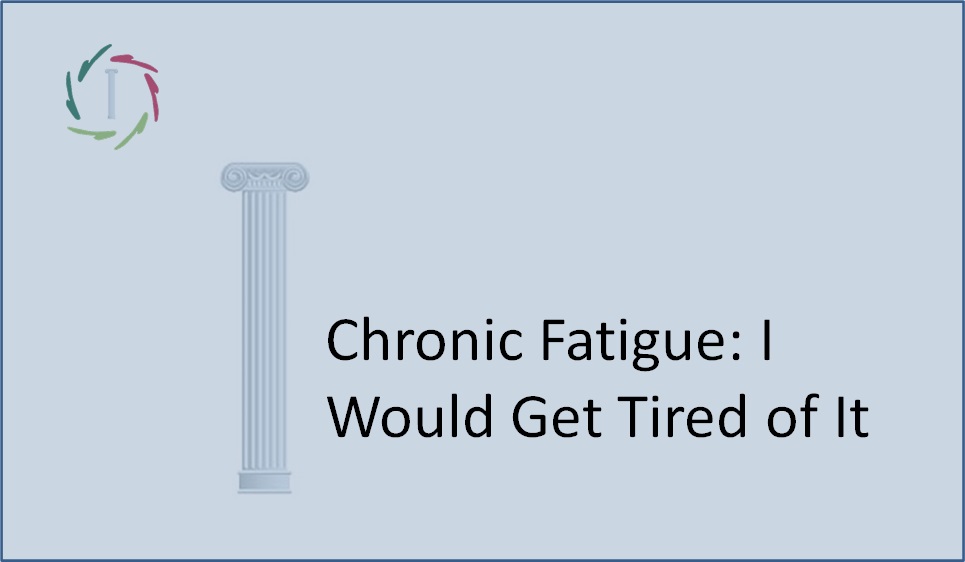
42. Chronic Fatigue: I Would Get Tired of It
A person suffering from chronic fatigue has no control over his fatigue, regardless of whether it is physical or psychological. The last thing someone with chronic fatigue needs is a chronic fight for appreciation and respect. Such a fight stands in the way of an unbiased search for a meaningful solution. Well, we are currently Read the full article…
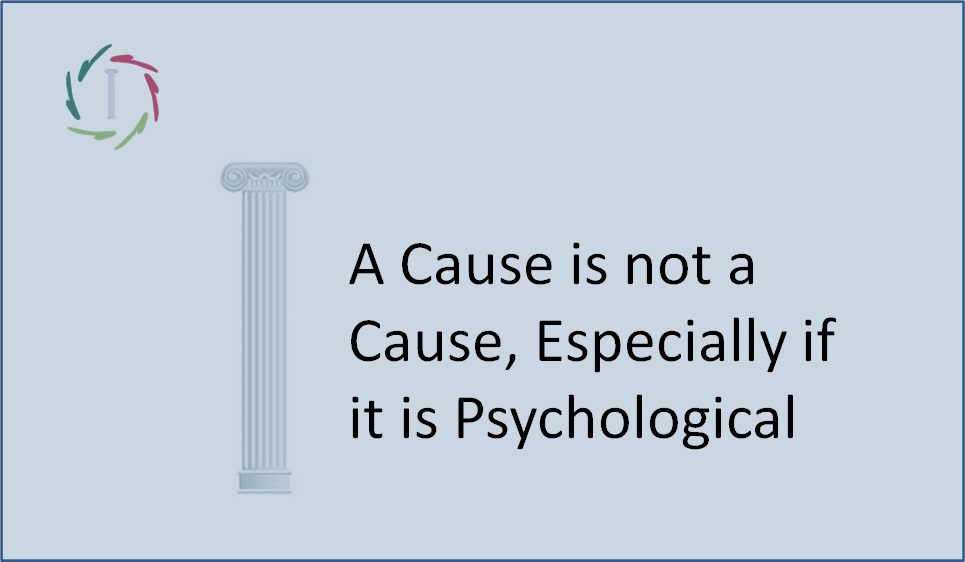
41. A Cause is not a Cause, Especially if it is Psychological
If one always stops at material causes, then the psyche is being filtered out (and vice versa). Searching for ‘the real cause’ of a phenomenon is generally human, although it is also known that, in many cases, this search is oversimplifying things. It does encourage action, though, so it is a happy middle of the Read the full article…
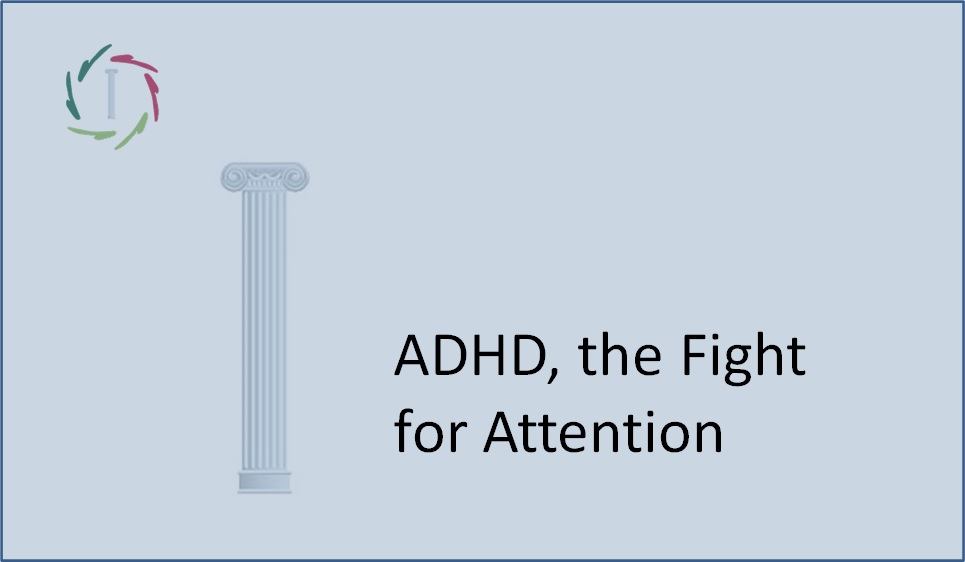
39. ADHD, the Fight for Attention
Children need ‘deep attention.’ In particular, what I have in mind is attention to who they are as a total person and, above all, to what remains invisible while giving ‘superficial attention.’ We have a responsibility to treat children well and to save them from unnecessary misery. If that means having to find possible causes Read the full article…
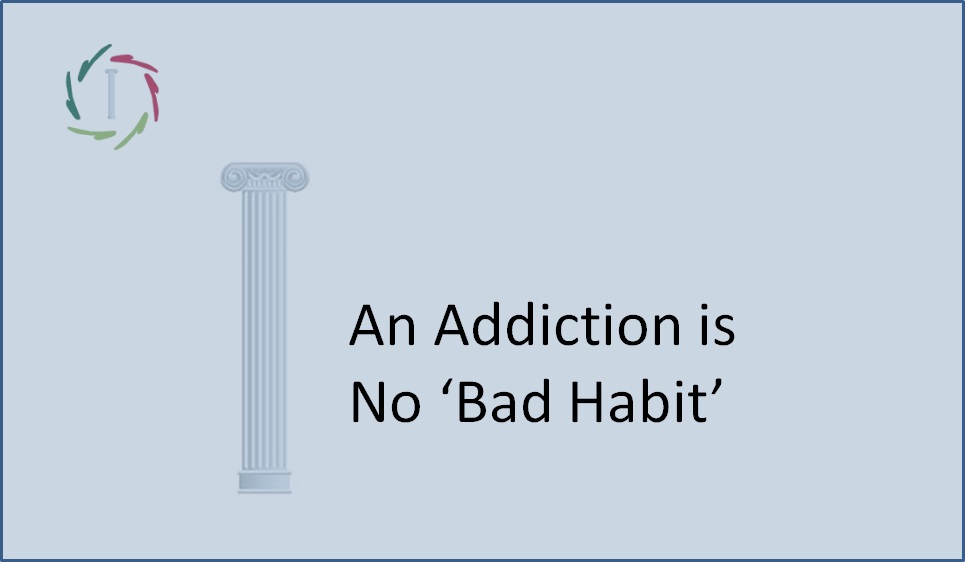
38. An Addiction is No ‘Bad Habit’
You are doing everyone a favor by pointing at the ‘circle of addiction’. Many people who are seriously addicted, see this as a ‘bad habit’. They say, “I will stop smoking if I feel like it, but that is not the case yet.” Okay, but what if this “I do not feel like stopping yet” Read the full article…
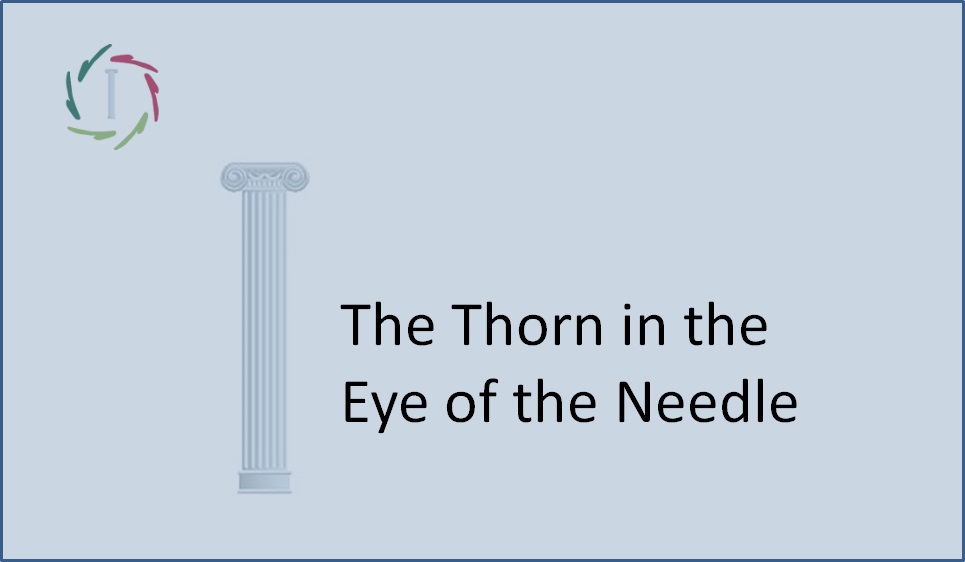
37. The Thorn in the Eye of the Needle
Acupuncture is a matter of art and philosophy, not of steel and energy. It exists already for so lang. Surely that cannot be true if it would not be effective? But of course it can. Just as a reminder: until the early nineteenth century, we in Europe have been happy with ‘body fluids medicine’, for Read the full article…
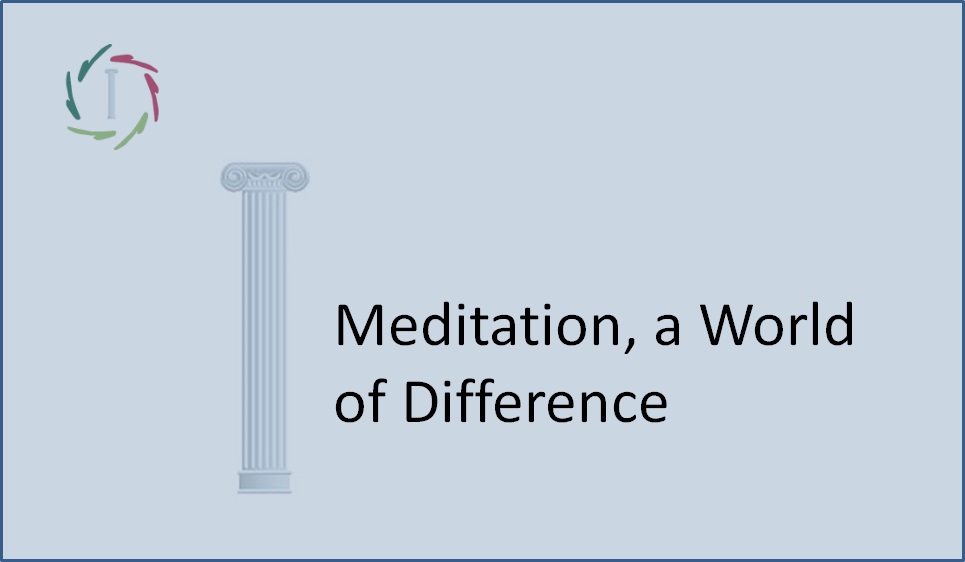
36. Meditation, a World of Difference
In serious meditation you will also find the sharpening of the own instrument to empathy. Meditation has many faces. It makes no sense to list many forms of meditation that differ greatly among themselves. Here below I prefer to enumerate some elements of what meditation is and is not, according to me. What meditation is Read the full article…
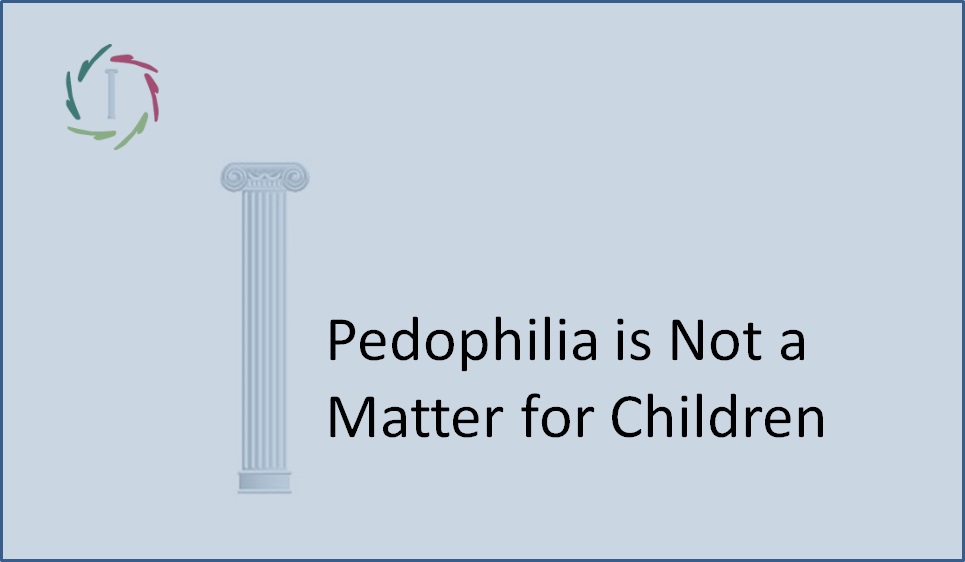
35. Pedophilia is Not a Matter for Children
No one is guilty of pedophilia, but indeed of actions that might result from it. A pedophile is not just someone who is molesting children by lack of adults. A pedophile feels sexually strongly attracted to children. This attraction comes from ‘somewhere outside conscious thinking’ just as, mutatis mutandis, when someone feels more and more Read the full article…
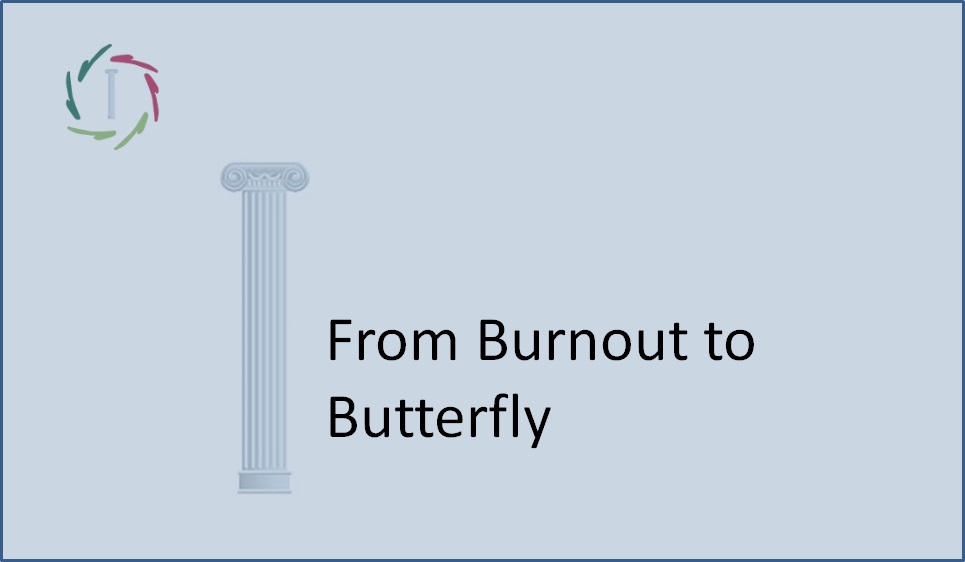
34. From Burnout to Butterfly
People are reborn in order to spread out their wings. Burnout is a pupating Nature is not as stupid as it looks. Especially not if one only looks at it with only half an eye to already decide that it is stupid. So, a lot of ‘illness’ is a healthy response to an unhealthy environment. Read the full article…
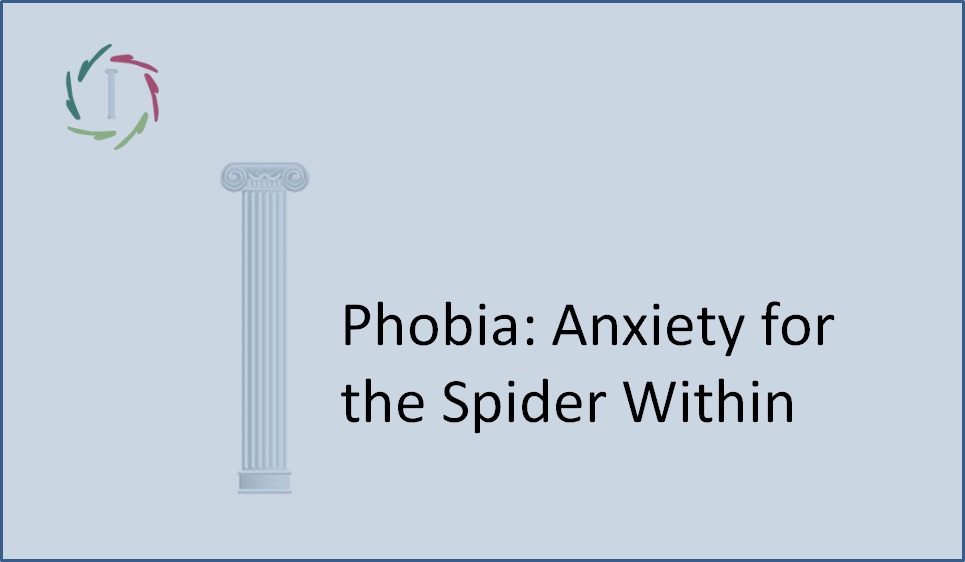
33. Phobia: Anxiety for the Spider Within
The real spider is present in the phobic person himself. Anxiety is not the same as fear I ‘get a little scared’ when I see the dentist approaching with his squirt. There are more pleasant situations. There is a little fear involved. Someone who faints at the idea or the sight of a syringe, however, Read the full article…
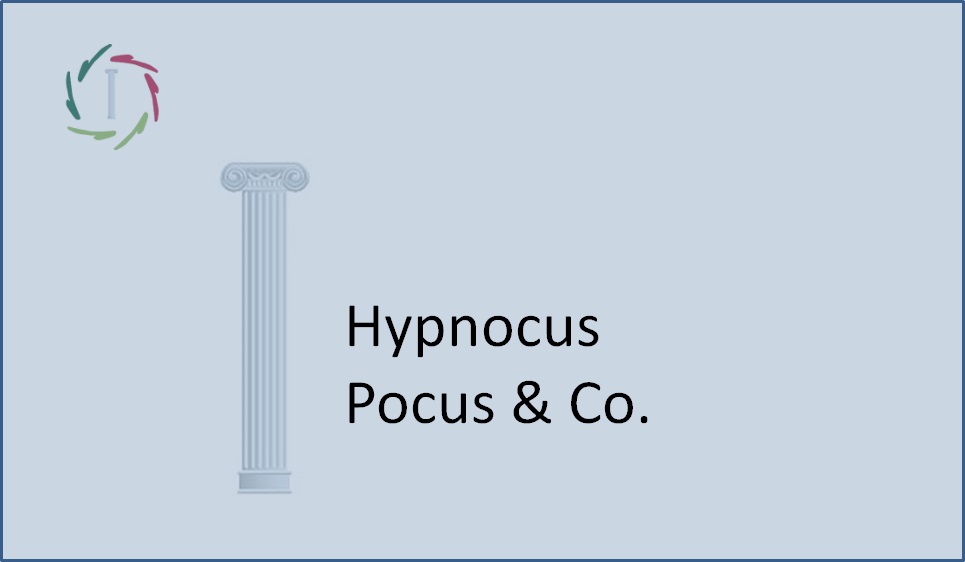
32. Hypnocus Pocus & Co.
“Everything that is possible with hypnosis is also possible without hypnosis.” Freud, suggestion, Braid, Liège At the beginning of his career, Freud flirted with hypnosis. Evil tongues claim that this was not his favorite because he could not get along very well with ‘the nonconscious’. So, he developed, with the help of psychoanalysis, a vision Read the full article…
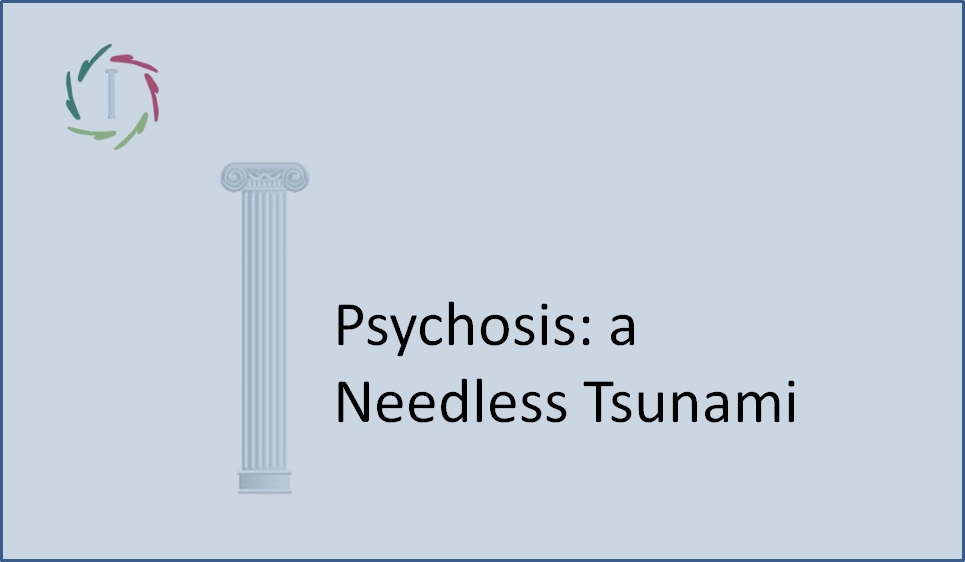
31. Psychosis: a Needless Tsunami
A tsunami requires a surfboard About ripples and a tsunami Is an abnormality of the brain the cause of psychosis? One can at least search for that. Probably one will find, in due course, more and more elements that fit the bill. I am sure one will. Everything that happens at a psychological level, has Read the full article…
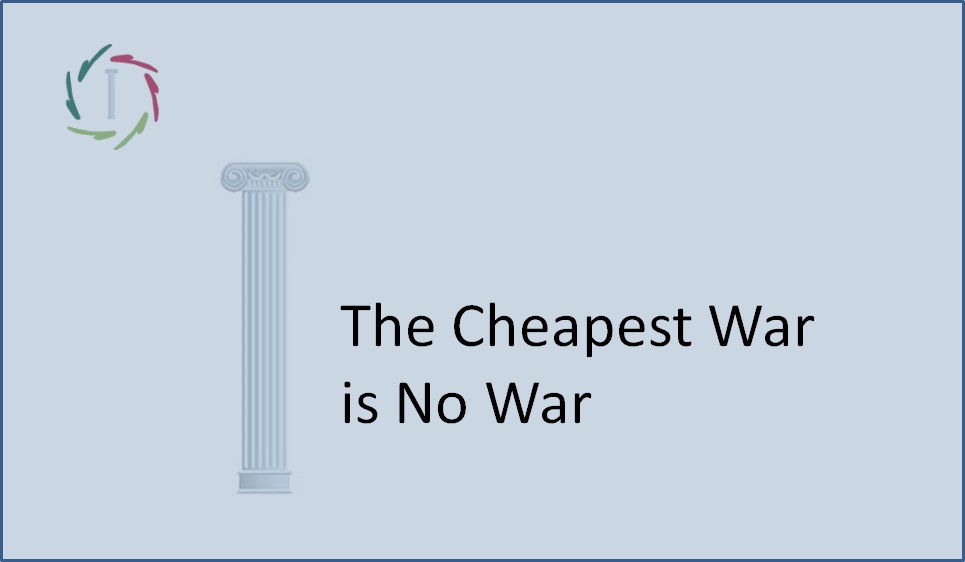
30. The Cheapest War is No War
o Mega savings by making peace The enemy ‘disease’? Our medicine is an attacking medicine. It is targeted at an enemy, called ‘disease’. To this end it uses weapons, called ‘pharmaceutical products’, ‘surgery’ and so on. But first it will, as befits an atttacking medicine, identify the enemy: ‘medical history’, ‘clinical investigations’, ‘laboratory ‘ etc. Read the full article…
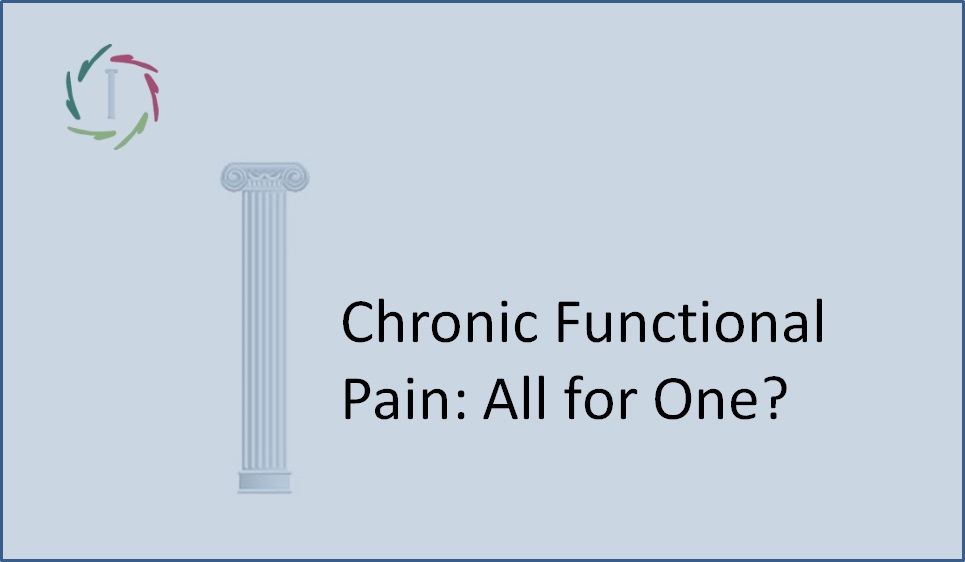
29. Chronic Functional Pain: All for One?
Different functional pain syndromes have more similarities than differences. Chronic functional pain as one syndrome The following quote is from Mayer & Bushnell, editors of ‘Functional Pain Syndromes’, 2009, from their word for this Yearbook, published by the ‘International Association for the Study of Pain’ (possibly the most scientifically renowned Association of the world that Read the full article…
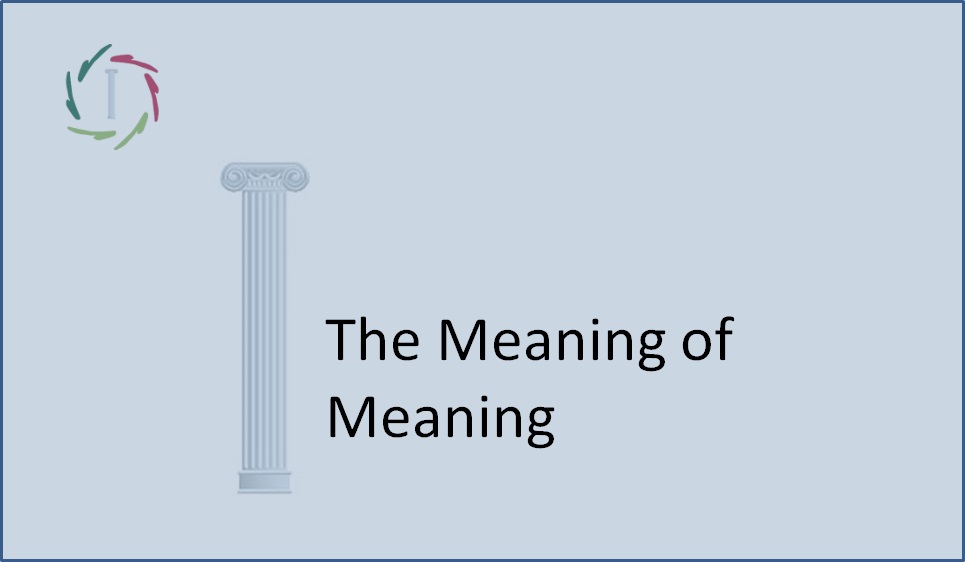
28. The Meaning of Meaning
Deep meanings sicken and heal. Nothing has meaning except meaning itself ‘Meaning’ only lives in a signifier (meaning-giver). This text for example, has no meaning for a turtle unless it likes to eat the paper on which the text is printed. More generally: If there is no one to understand this text, then it’s just Read the full article…
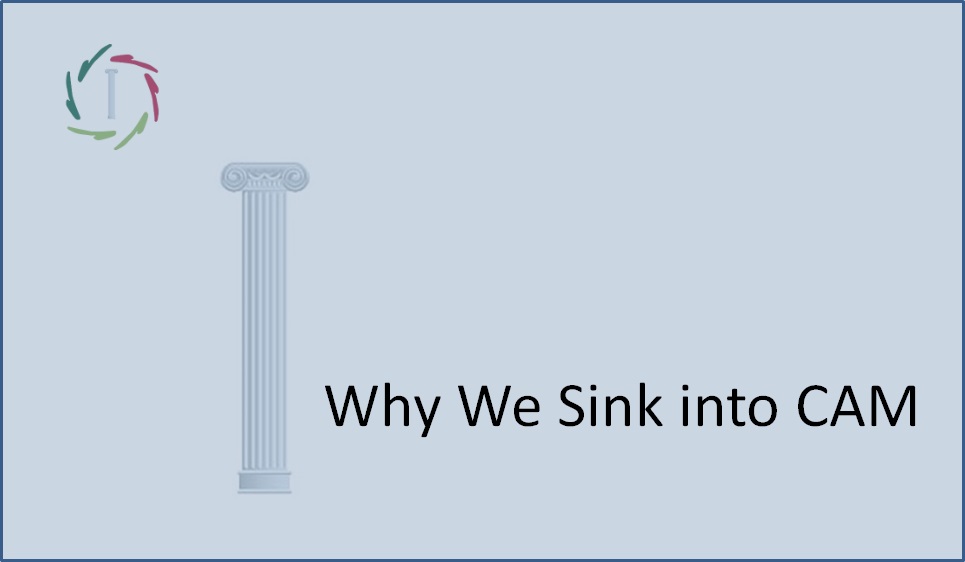
27. Why We Sink into CAM
CAM is like an amoeba. Not more rational than trial and error and some super simplicity. Common sense According to research in the US, it are mainly people with a higher education that practice CAM (Complementary & Alternative Medicine). Does this mean that common sense sees through the CAM thing much faster? Or do highly Read the full article…
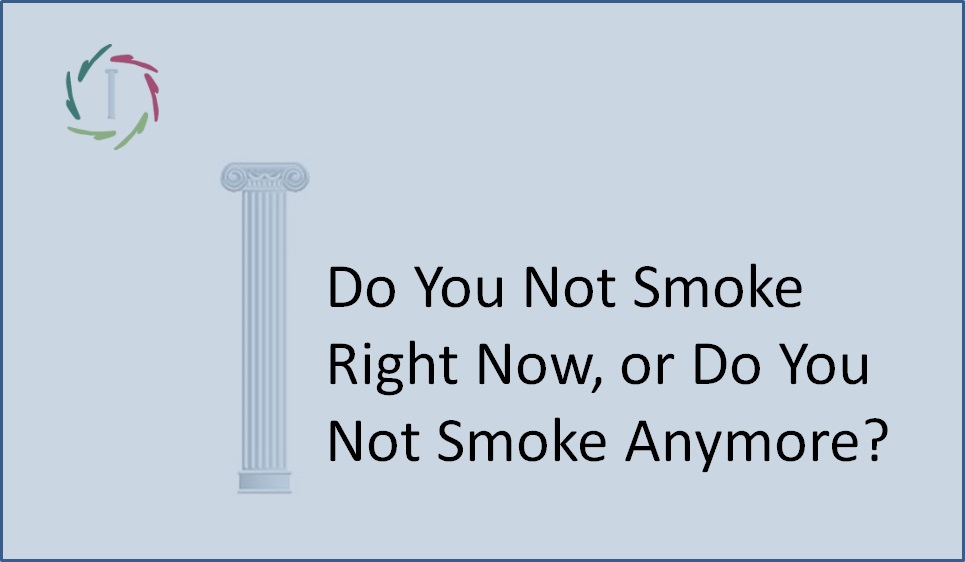
26. Do You Not Smoke Right Now, or Do You Not Smoke Anymore?
Smoking does not (necessarily) make the smoker Psyche, nicotine It’s common knowledge that the physical aspect is just a little part of the total addiction. The biggest part of an addiction is present ‘in the mind’. Nicotine is not much more than the leverage of the jack with which the real smoking addiction is being Read the full article…
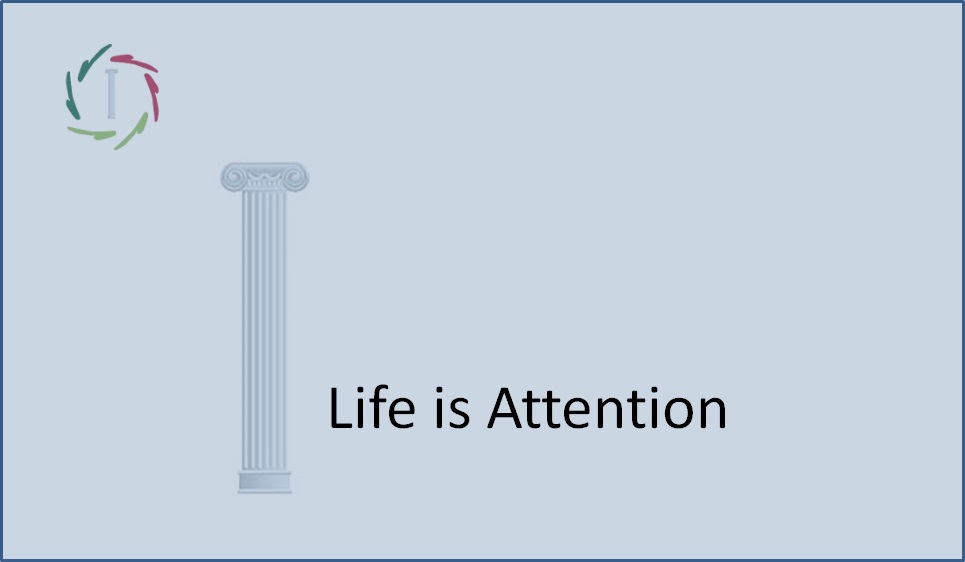
25. Life is Attention
Life is attention. Attention is life. Definition of ‘life’ Any doctor has ever learned a definition of ‘life’… and at the same time of the existence of at least one vague zone: viruses. A virus does not grow, does not eat and actually it does not multiply itself. Instead of this, it is ‘replicated’ by Read the full article…
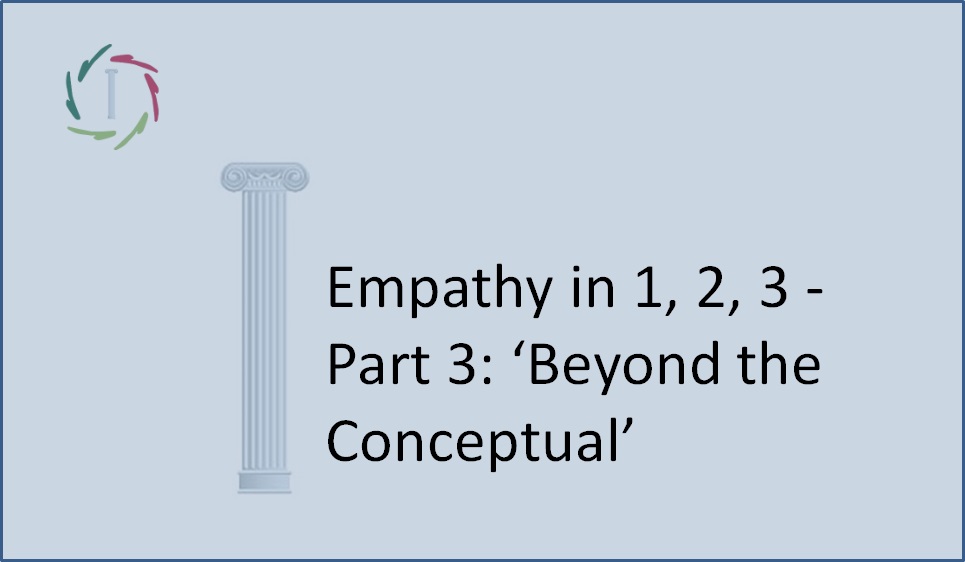
24. Empathy in 1, 2, 3 – Part 3: ‘Beyond the Conceptual’
“Where two of you are together, I am present.” The human mind: rather a chest of drawers or a cloud? One could see the human mind as a collection of boxes, a kind of chest of drawers in which one can store all kinds of things. There is a clear subdivision. In each tray, there Read the full article…
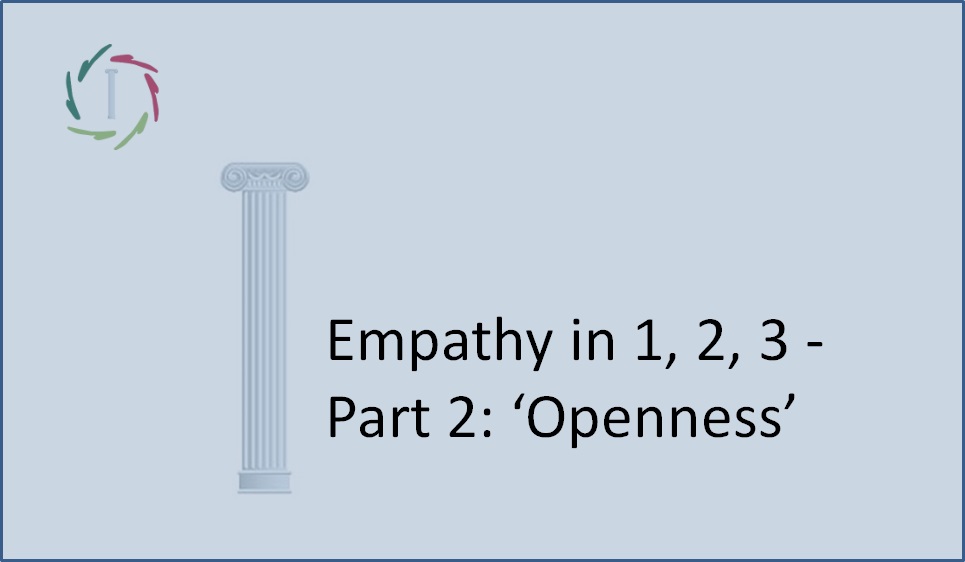
23. Empathy in 1, 2, 3 – Part 2: ‘Openness’
Most important in empathy: Do not stand in the way of it. Openness to meaningful patterns By this I mean YOUR openness. It may feel like intuition or a deep sensation. You may have already heard of ‘non-conceptual communication’: in addition to everything a patient tells you at a verbal conceptual level, he/she always sends Read the full article…
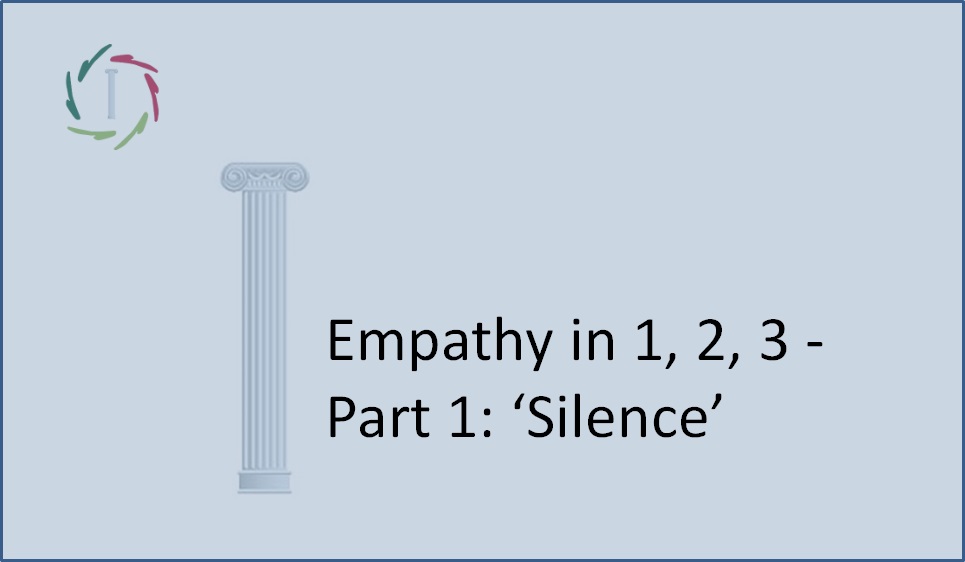
22. Empathy in 1, 2, 3 – Part 1: ‘Silence’
Silence is the mental space in which the patient may be him/herself. Harsh destination In a previous column, you could read about the importance of empathy. [see: “Empathy: What it Was, Is and… Will Be?“] An empathic doctor does not need to be convinced of that. A non-empathic doctor does, because for him it is, Read the full article…
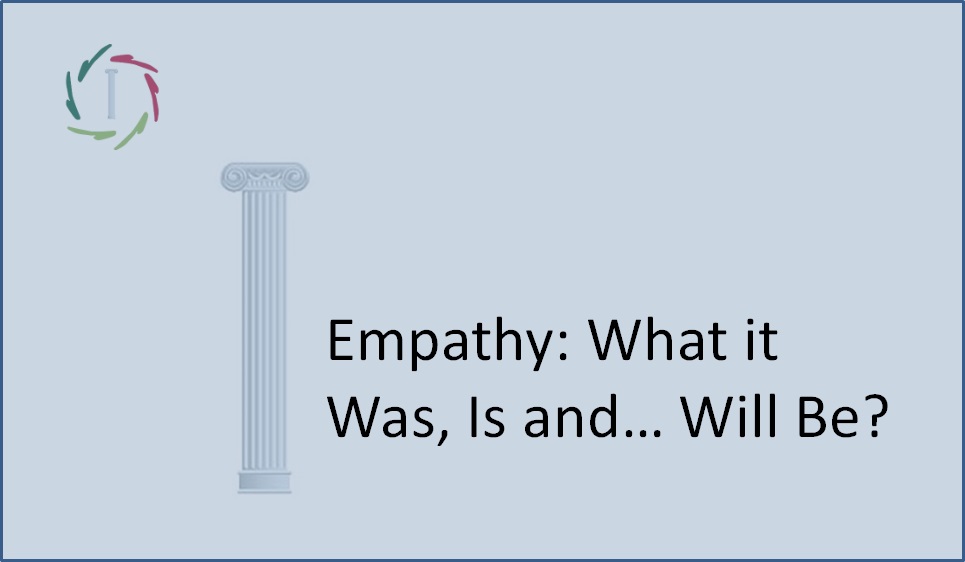
21. Empathy: What it Was, Is and… Will Be?
Empathy is difficult to conceptualize because it is ‘beyond the conceptual’. What it was In the second half of the 19th century, bedside manners were the main instrument of the doctor. The time of bloodletting, purgatives, and leeches (in 1827 in France still good for an import of 33 million specimens, in addition to the Read the full article…
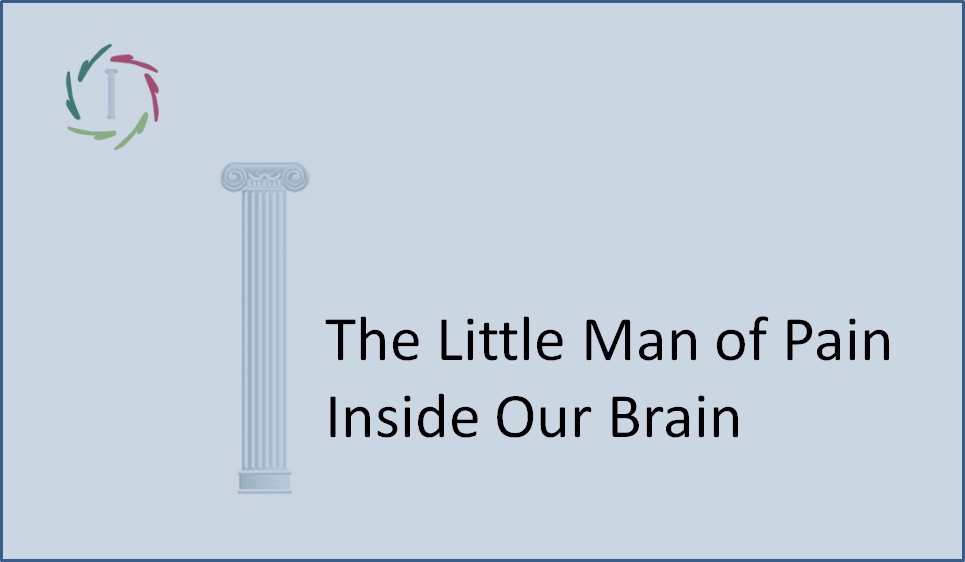
20. The Little Man of Pain Inside Our Brain
Pain Neuromatrix: science, no fiction R.Melzack, Nobel Prize winner on the basis of his Gate Control Theory, has subsequently also developed the Pain Neuromatrix theory. In this theory he locates even more the mechanism that produces pain – so the fact of ‘feeling’ pain – within the brain itself. The Pain Neuromatrix is a distributed Read the full article…
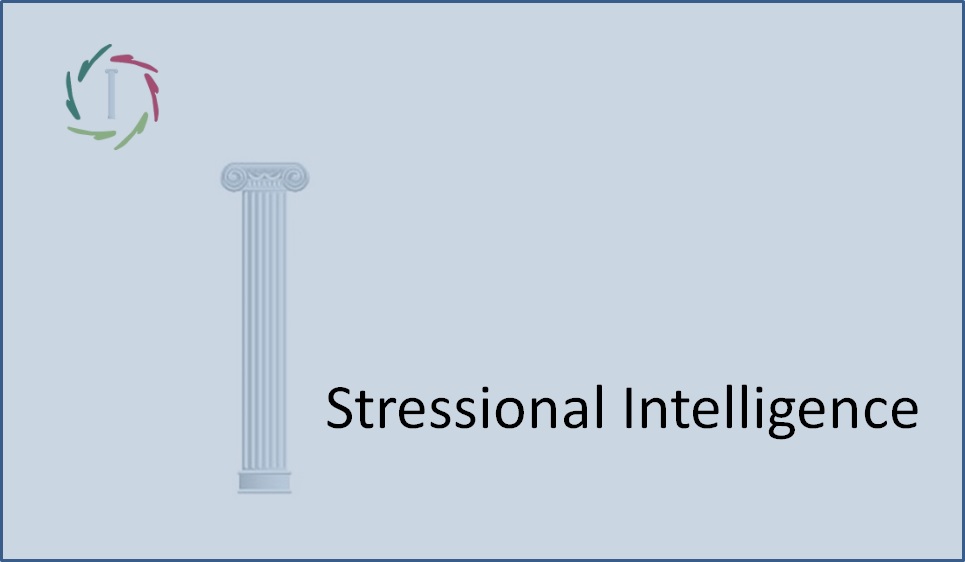
19. Stressional Intelligence
This piece of text follows upon ‘Stress: an amorphous thing or a world of meaning?’ Stress is not some kind of blob that appears from nowhere, but a complex picture. In this text we look at stress from five different angles. Each of these angles brings some insight into the meaning of Read the full article…
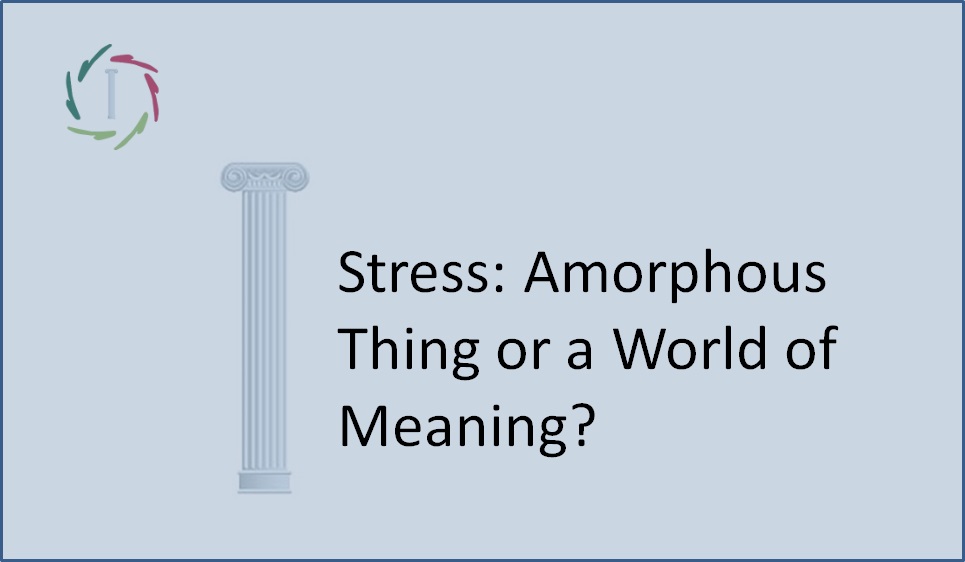
18. Stress: Amorphous Thing or a World of Meaning?
Throw all colors in one and the same pot and the result is grey: that’s no basis for a beautiful painting. In the thirties of the last century, Hans Selye introduced the concept of ‘GAS’ (General Adaptation Syndrome) as the default response of an organism to a stressor. He was the first person who saw Read the full article…
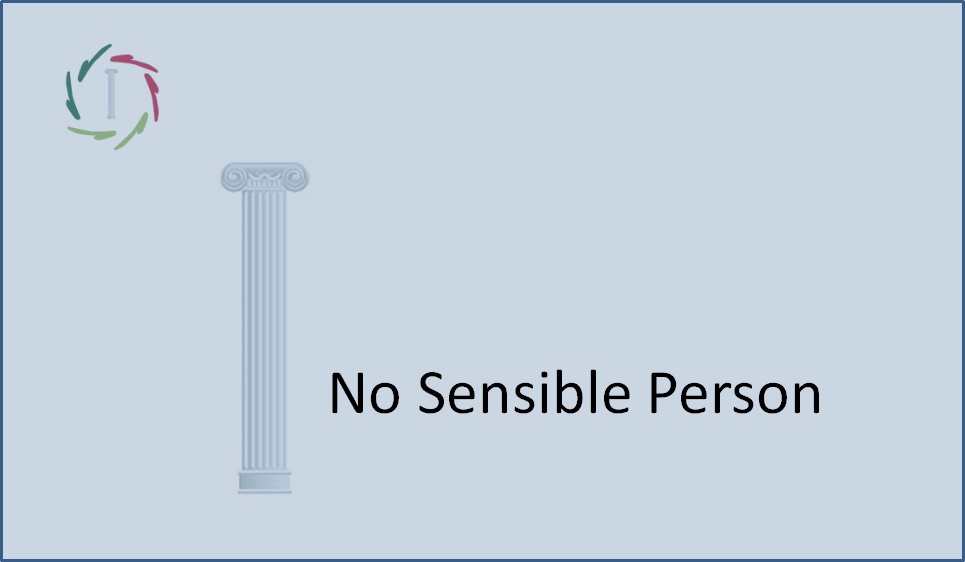
17. No Sensible Person
Regardless of how it presents itself, black magic is what it is. One may keep pretending that nothing has happened. In the long run, this means: hands full of blood that comes indeed from somewhere. No side effects?!? Acupuncture, homeopathy, osteopathy, chiropractic therapy*. Just to mention four. In recent years, big research trials (bigger than Read the full article…
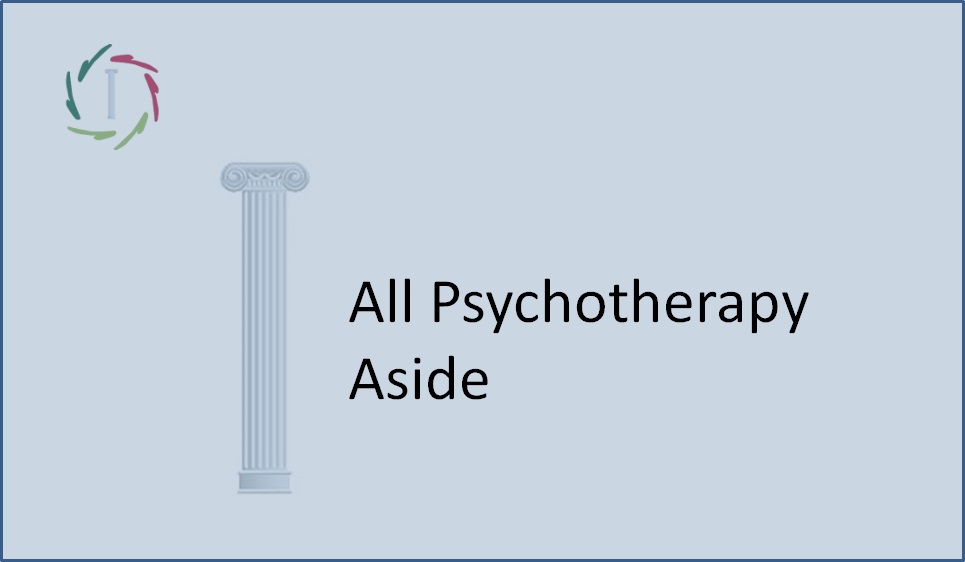
16. All Psychotherapy Aside
By far the most important active factor is invisible. Dodo verdict The dodo (synonym: loathe bird) is an extinct species of bird, used by Lewis Carroll in ‘Alice in Wonderland’. Somewhere in this story a contest is held for all animals, but oddly enough, everyone may start and stop running at any time. The dodo Read the full article…
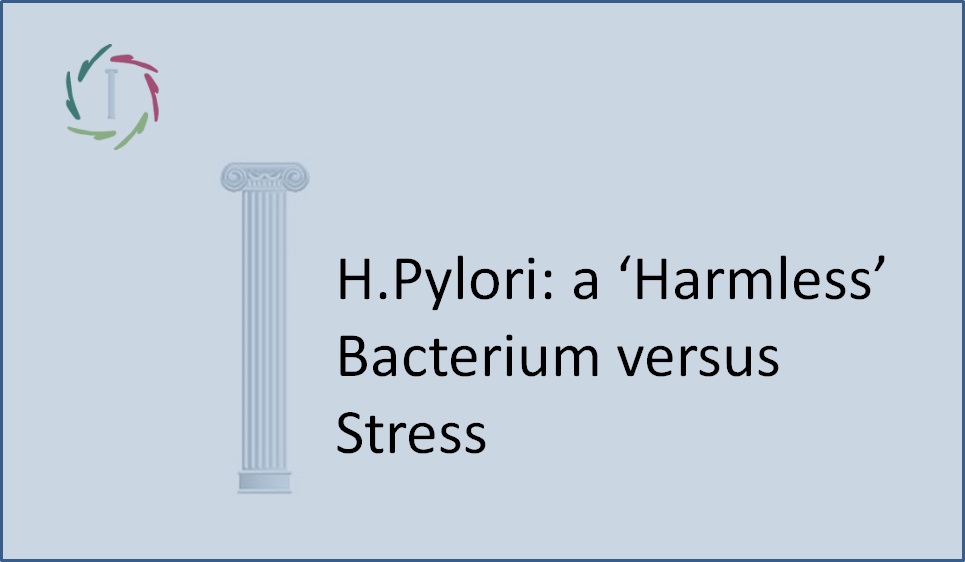
15. H.Pylori: a ‘Harmless’ Bacterium versus Stress
Currently, medical causal thinking is a disaster. The pre-bacterium era Life, they say, can turn on a dime. For centuries and up to +/-30 years ago, the term ‘gastric ulcer’ stood for one of the clearest psychosomatic disorders. Stress was undoubtedly the cause par excellence of a gastric ulcer [19] [39]. What’s more, there is Read the full article…
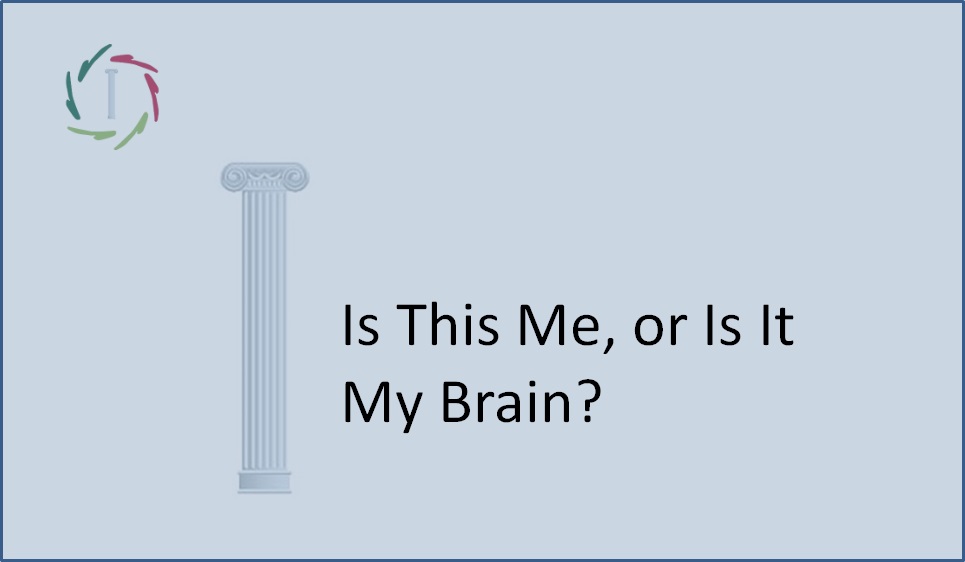
14. Is This Me, or Is It My Brain?
I use my brain, but who is ‘I’ without a brain? Is a brain an instrument of ‘I’? If this is the case, then is ‘I’ a kind of homunculus that is present somewhere in a separate box in the brain? In the Middle Ages it was thought that this was indeed the case. For Read the full article…
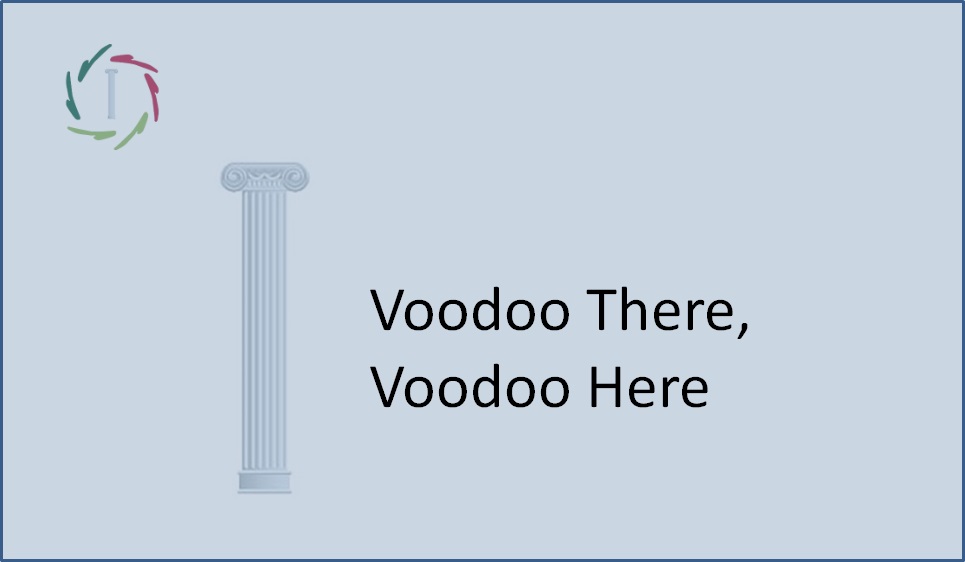
13. Voodoo There, Voodoo Here
100% rationality IS 100% humanity. Gods and goddesses In the 6th year of my med school I did a five-month internship in Salvador Da Bahia, Brazil. Very interesting and also very significant for the ‘sensitive’ guy I was at the time. For many reasons. Among other things because of the contact with Candomblés, a Voodoo Read the full article…
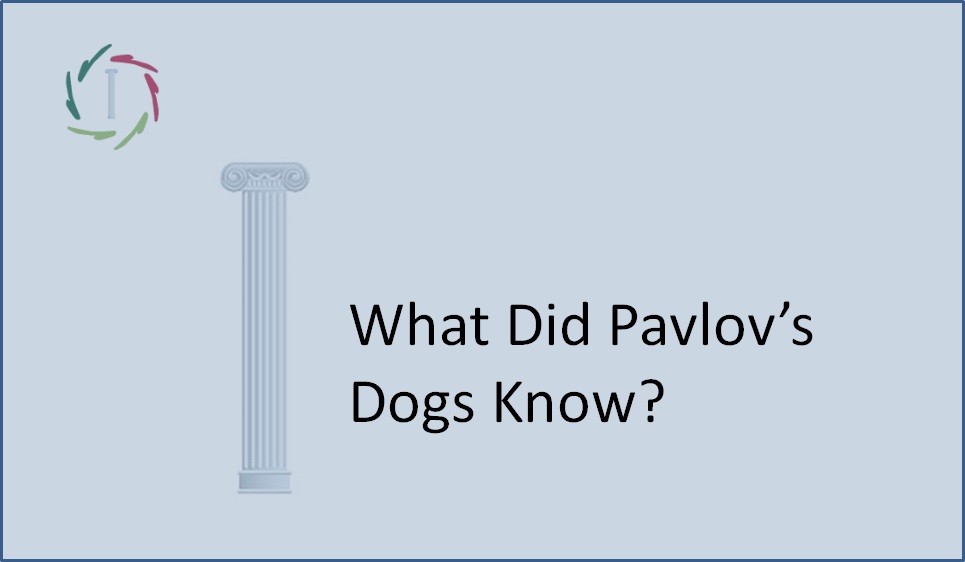
12. What Did Pavlov’s Dogs Know?
Who was being conditioned: the dogs or Pavlov? The premise of conditioning Conditioning counts on a simple perspective upon the unconscious, as a collection of mental reflex-arcs. A kind of black box between Stimulus and Response which is hardly worth the effort to be opened. So, in the world of conditioning, one does not bother. Read the full article…
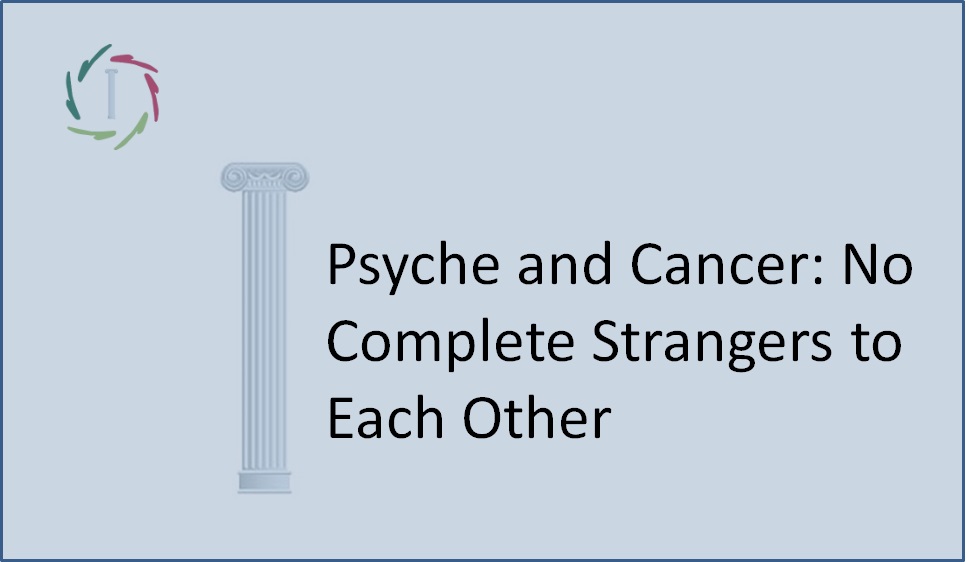
11. Psyche and Cancer: No Complete Strangers to Each Other
We know very little. We certainly should not pretend. A rats’ tale In the early seventies, two researchers, R. Ader and N. Cohen, showed very clearly that there is a major role of psychological stress in the evolution of cancer in rats [10]. Others confirmed this research and recently the cellular basis of it is Read the full article…
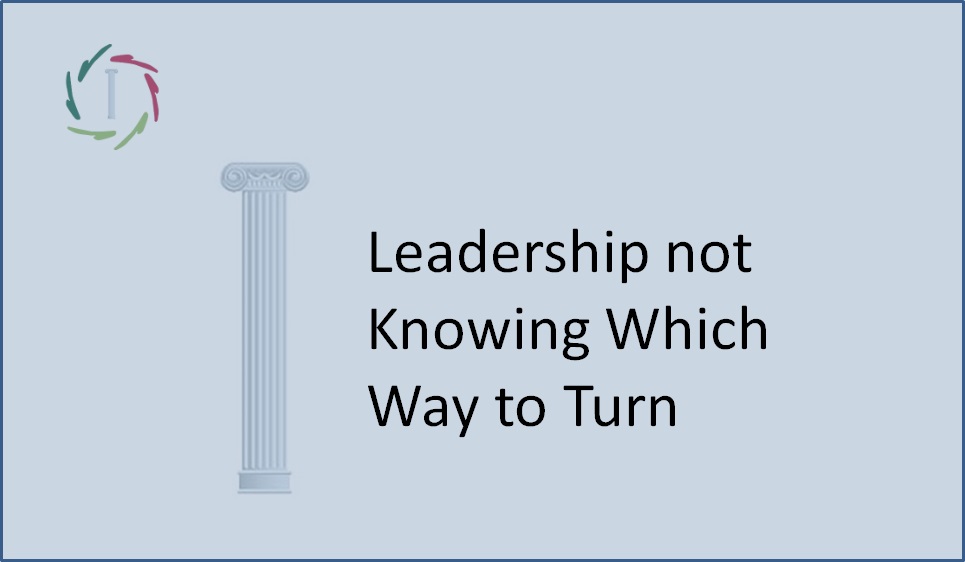
10. Leadership not Knowing Which Way to Turn
A leader knows that a ship cannot sail without the sea. Everyone a leader A leader is not only the one at the head of a company or of a hospital for example. Actually, everyone is a kind of leader within his/her own world. Leader of a medical department, a private practice, a household, a Read the full article…
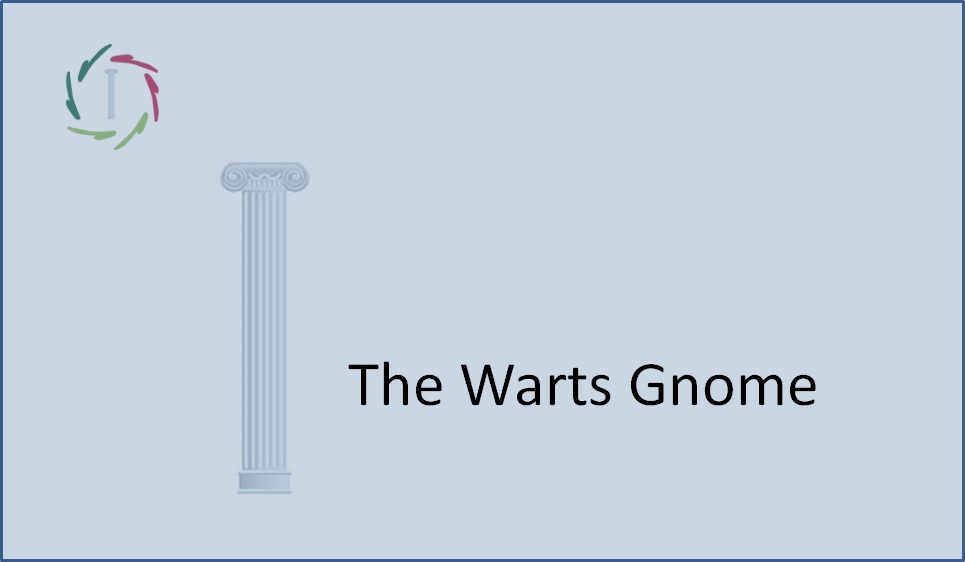
9. The Warts Gnome
The method used to remove warts is of utmost importance! (dixit the gnome) The way he works In former times, one consulted a so-called ‘warts saint’ when one was suffering from banal warts. According to many narratives, that saint garnered a lot of success. Also hypnosis seems to work. Even ‘hypnosis without trance’. Even rubbing Read the full article…
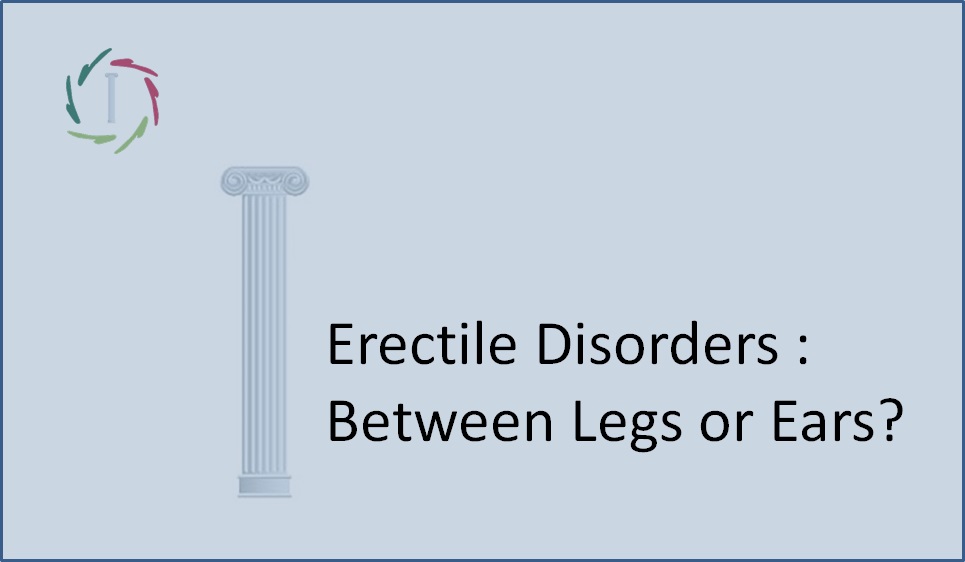
8. Erectile Disorders : Between Legs or Ears?
Between the legs. Between the ears. Between the blankets. The total picture is always important. We observe a swing motion in this. Nowadays the phrase ‘between the ears’ is not much appreciated. Twenty years ago this was different and within twenty years… well, who knows. But not now. However I know – just like every Read the full article…
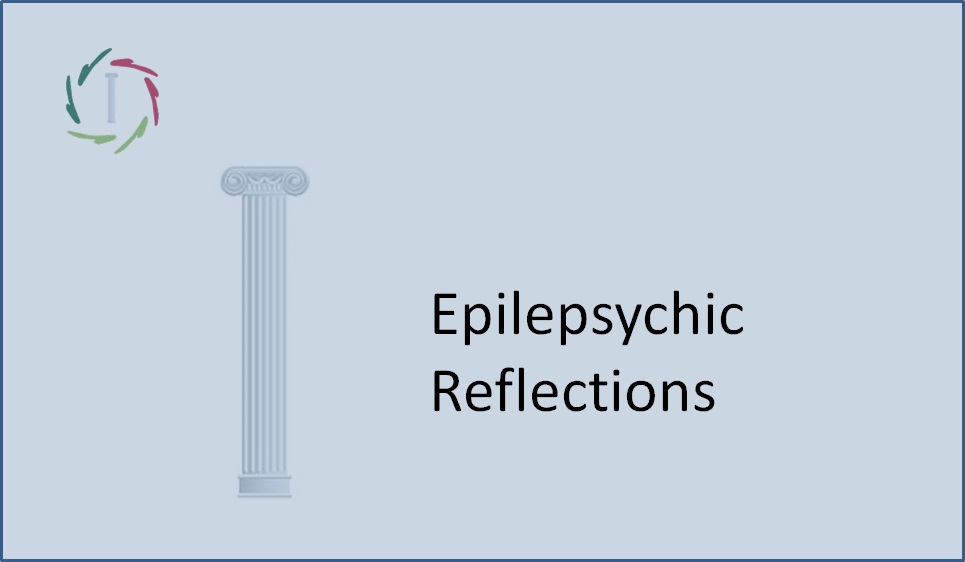
7. Epilepsychic Reflections
Taking the mind-body unity into account leads to a more patient-friendly environment. State of affairs according to PubMed referenced literature: PNES-patients (Psychogenic Non-Epileptic Seizures) suffer seizures that resemble epilepsy but EEG does not show typical anomalies related to epilepsy. These people are believed to have psychic problems that cause these seizures. According to literature we Read the full article…
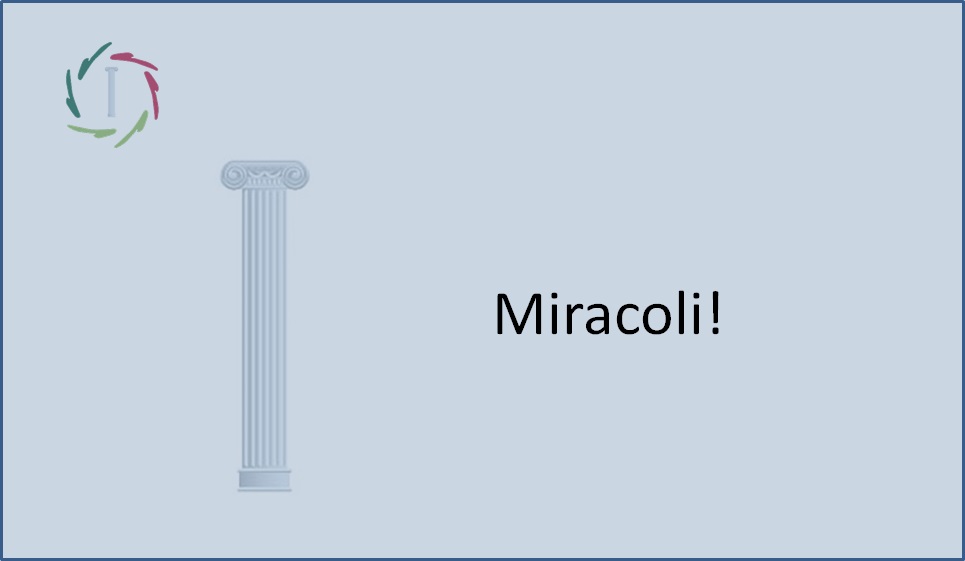
6. Miracoli!
Every miracle cure is an ordinary healing. And each ordinary healing is a miracle. We are living in quite rational times… For example: exorcisms, magic needles, holy healing water, unholy healing water, healing magnets, hypnocus pocus, etc. And, why not, also miracle healings. And even an infallible pope who ‘saw that it was good’. Why Read the full article…
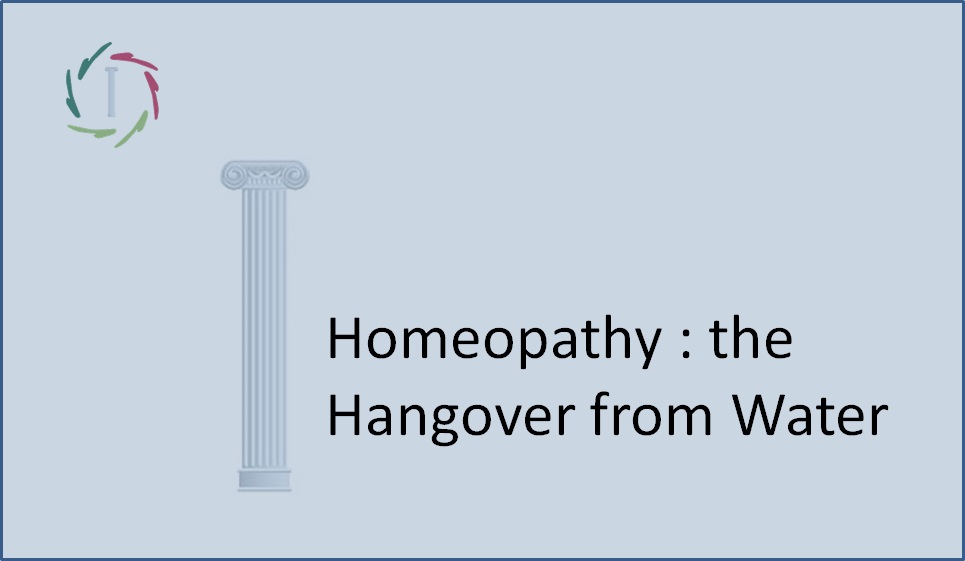
5. Homeopathy : the Hangover from Water
Of course ‘it’ works. Of course ‘it’ is a just a placebo: the patient as medicine. “I can feel it working. Do I need more evidence?…” In essence homeopathy does not appear to be rational (does water work???), however this barely influences the Average Joe. He seeks legitimacy elsewhere. It is recommended by insurance companies. Read the full article…
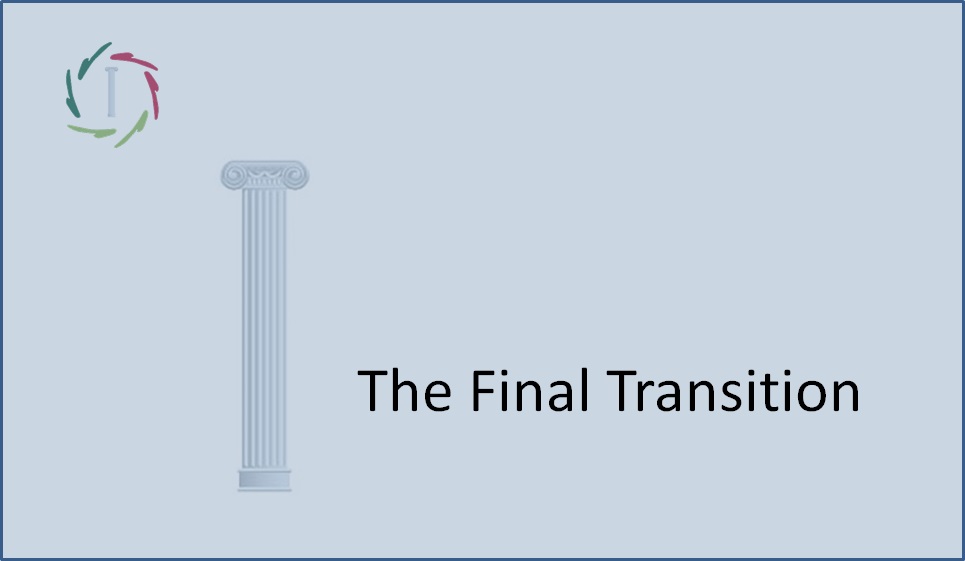
4. The Final Transition
The symbolic level of palliative care is always of utmost importance. People have the tendency to avoid thinking about death, making it into something strange or even scary… Then we try to ignore it even more, hence it becomes even scarier. However, life without integrating mortality is incomplete. As death draws closer, we look Read the full article…
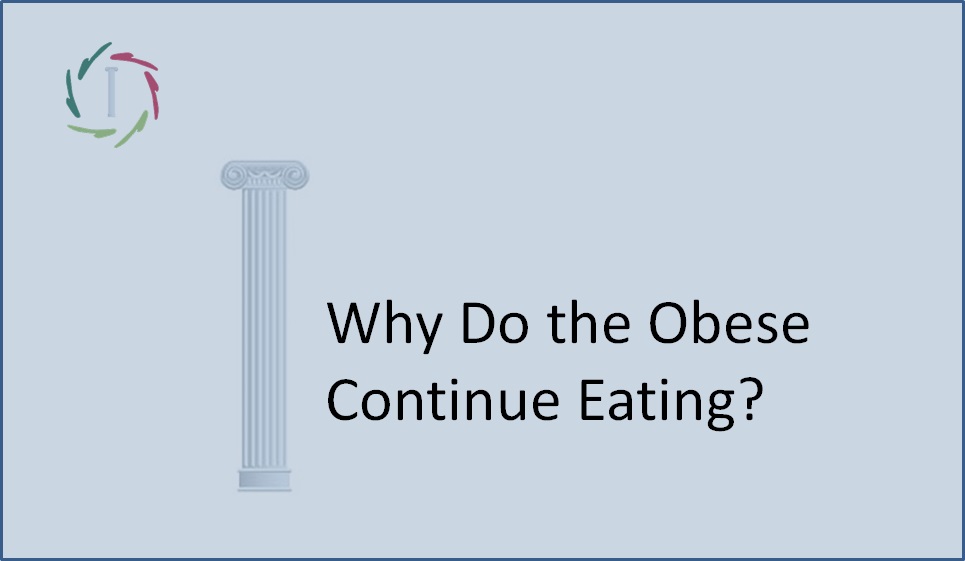
3 Why Do the Obese Continue Eating?
Most obese people fight against the own ‘wanting’ as against an invisible enemy. No hocus pocus! We know that the calories which are present in a human body have been entered there one way or the other. No hocus pocus. Therefore losing weight is the most simple thing to do, namely: not doing something. Then Read the full article…
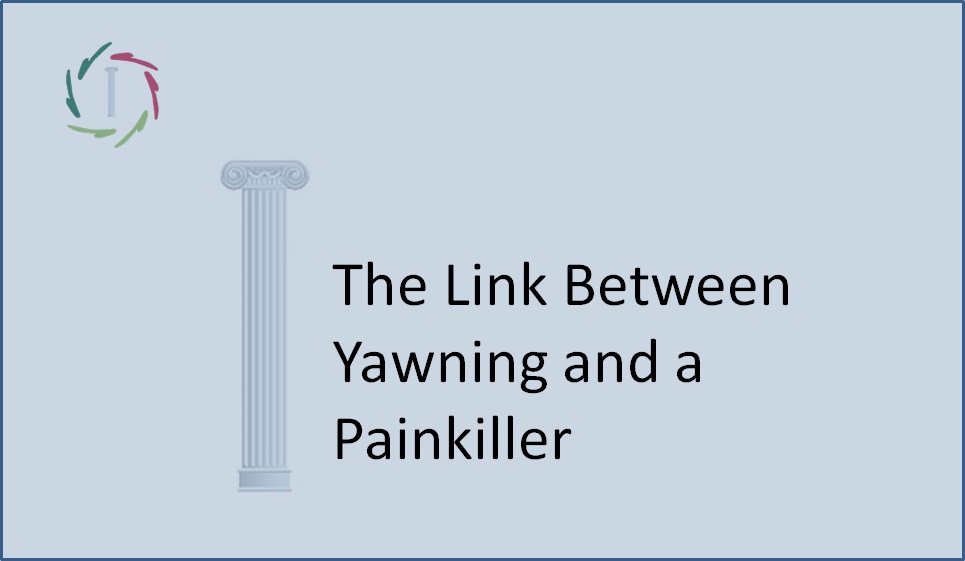
2 The Link Between Yawning and a Painkiller
The placebo effect is substantial AND we do not have to deceive the patient for it. Someone yawns. Seeing this, someone else gets an urge to yawn. Or someone (you perhaps?) reads about yawning and already feels an urge towards it. A well-known phenomenon. But what is the cause of it? There can only be Read the full article…
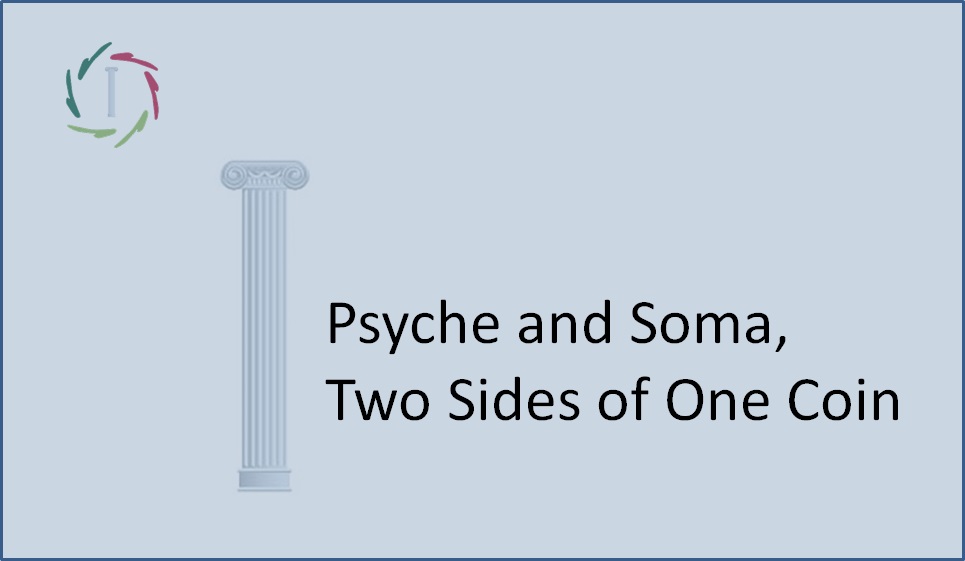
1 Psyche and Soma, Two Sides of One Coin
‘Body-mind unity’: necessary vision for further scientific development of medicine. Psyche and soma and a lot of questions Psyche and soma: mind and body. They are both important, so we learn during our student years and also after that in and through practice. But how do we give to the psyche a proper place in Read the full article…